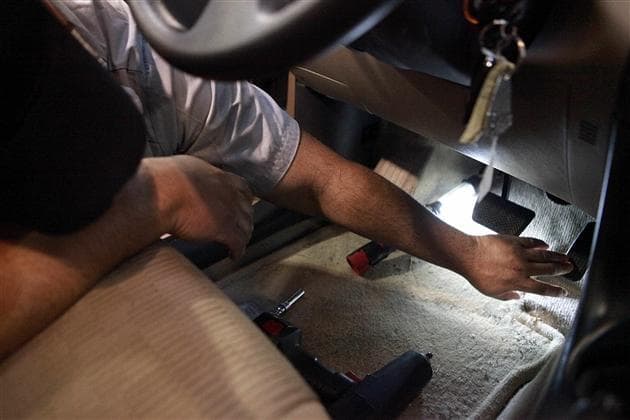Advertisement
The 'Car Talk' Spin On Toyota Recalls

First it was sticky gas pedals, now it's faulty brakes. Toyota said this week it is considering a recall in the U.S. and Japan for its Prius gas-electric hybrid, which has been plagued with braking problems. The problems with the Prius follow a global recall Jan. 21 for vehicles with gas pedals that stick and can cause sudden acceleration.
Who better to turn to with car problems than WBUR's own in-house auto geniuses, Click & Clack of Car Talk? One half of that team, Ray Magliozzi, offers his take on the Toyota recalls.
How is the braking on hybrids different from on other cars?
One of the ways that the hybrid accomplishes such good mileage is that, when you're slowing the car down, it uses the energy that would ordinarily be lost to heat to make electricity, and then store that electricity in the battery so that can be used later on to power the car.
The systems that are used in that hybrid configuration are pretty complicated and, I suppose, prone to errors. And you mix in with that the fact that these cars all have to have anti-lock brakes, it adds another level of complication to the whole process.
Toyota says they already have a solution?
I've heard about it, but I don't know what their solution is. Evidently it's some kind of a software upgrade. Maybe, in fact, the brakes are too sensitive or not sensitive enough.
I mean, when the anti-lock brake system kicks in is determined by when the computer determines that a wheel is locked up and skidding, and it may be that the computer is responding incorrectly to the inputs it's getting from the wheel sensors, because every anti-lock brake system car is reading the speeds of every single wheel and comparing them all the time and ideally you want all the wheels to be slowing down at the same rate.
What's this talk about the sudden acceleration problem being related to the fact that drivers are now one layer removed from controlling the car — a person hits the gas and it sends a signal to the computer, requesting to open the throttle?
Every car has the same set up. Back in the old days, there was an actual cable or a linkage that connected the gas pedal in the passenger compartment to the carborator, so that when you stepped on the gas pedal, the cable got pulled, it opened the throttle and a larger mixture of gasoline and air got introduced into the engine — and that made the car go faster.
And for a lot of different reasons, not the least of which is to make our air cleaner, manufacturers have gone over to this electronic system where, when you step on the pedal, what happens is a variable resistor is sending a current to the computer, which is interpreting that information and sending a signal to an electric motor at the throttle, which is opening up the throttle, determined by how much you stepped on the pedal.
Your commute from your house to work is, what, 10 minutes? During that commute, if you were driving a car of yesteryear, you would be polluting 10 times more than your car is polluting now, because most of the pollution that occurs, occurs during what's called the warm-up period.
Well, your car is hardly warmed up by the time you get to work, and if you had an old-fashion design with a carborator, the choke would still be partially closed, you'd be polluting the air. And with the modern electronic throttles, they can control everything so precisely that your engine is running very clean within seconds of its being started.
They were saying if you have that stuck accelerator, you should throw your car into neutral and turn it off?
Not turn it off! I think there has been a lot of misinformation out there — we have a thing on our Web site that tells people what to do, cartalk.com. But do not turn the key off, under any circumstance. You're going to lose your power brakes, you're going to lose your power steering.
So, the secret is, if the car is running away, move the shifter from drive into neutral — it's one step away — and the engine will race like crazy. It will be scary because the engine will sound like it's going to blow up, but you will not harm the engine, and engines will not blow up if they are over-revved now.
Can you, in the Car Talk way, tell us how it might sound?
WAAAAAAAAAAAAAAAAAAAAAAAAAAAA. It will be loud. It's OK. It really is.
Do you think Toyota will recover from this public relations nightmare?
I'm sure they'll recover from it. At the end of the day, they make great cars and they're going to make even better cars, I think. They'll be more dedicated to being the company that foresees these kinds of problems occurring.
And to be fair, virtually every car on the road today, at least every modern car, has an electronic throttle just like Toyota's.
This program aired on February 5, 2010. The audio for this program is not available.